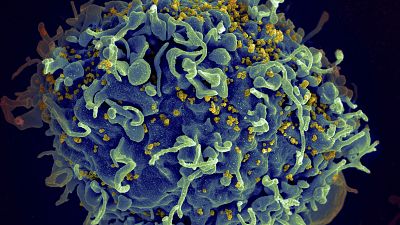A new study showed that artificial intelligence (AI) can estimate a healthy individual’s age from a chest radiograph.
Scientists have developed an artificial intelligence (AI) model that can read chest X-rays to determine a person’s biological age.
In a new study published in The Lancet Healthy Longevity journal, researchers from Osaka Metropolitan University in Japan found that the higher the AI-estimated age compared to a person’s actual age, the more likely the individuals were to have a chronic disease.
"Our results suggest that chest radiography-based apparent age may accurately reflect health conditions beyond chronological age," said graduate student and study author Yasuhito Mitsuyama in a statement.
"We aim to further develop this research and apply it to estimate the severity of chronic diseases, to predict life expectancy, and to forecast possible surgical complications".
In order to create an AI model that can read chest radiographs or X-rays, the researchers used more than 67,000 chest radiographs obtained between 2008 and 2011 from healthy individuals across multiple institutions.
For healthy individuals, there was a strong correlation between the AI-estimated age and the person’s chronological age.
Higher age compared to a person's actual age
The researchers also tested more than 34,000 chest radiographs from patients with known diseases.
They determined that the AI-estimated model gave a higher age compared to the person’s actual age for certain chronic diseases such as hypertension, chronic obstructive pulmonary disease (COPD), liver disease, lung disease, and chronic renal failure.
There was little correlation, however, for acute diseases, such as ones that are more recent infections like pneumonia.
"This result means that our AI captures chronic changes rather than acute changes in chest radiography, which is reasonable because ageing results from chronic changes that accumulate over time," the study authors said.
The authors said that this AI model could serve as an indicator for age-related diseases and help with early detection and intervention.
But they called for further research to confirm causality, compare the AI model with other biological age markers, and study other ethnic groups.



